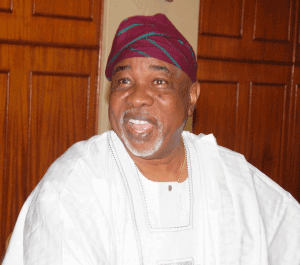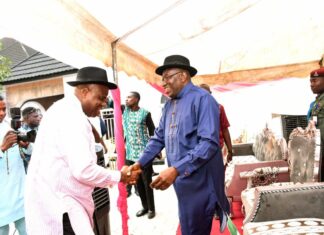In this encounter with Reporter, MARY OGEDENGBE, Nigeria’s Ambassador to Ghana, Ademola Onafowokan, speaks on the relationship between the two countries as well as the environment for investment among others. Excerpts…
How would you describe the relationship between Nigeria and Ghana?
Ademola Onafowokan
It is excellent. We are just trying to see what we can do to make it even better; to boost the trade. But as you want to know, Nigeria is Ghana’s biggest trading partner. However, the volume of trade still has potential of growing bigger. We still need to do more statistics on tertiary trade; that is, the everyday trade across the border that is unrecorded. Aside that, it is excellent.
How else can the relationship be improved and sustained?
There are a lot of things that we can do. If, for instance, we get more authentications of Ghanaian products that are coming to Nigeria, Ghana can bring in more products into Nigeria. Do not forget that Nigeria is doing great business in Ghana. We have over six banks. We have all the key insurance companies. We have big real estates and so many things going on between the two countries.
So what we are looking out for is a way to make the trade on both sides balanced; whereby Ghanaians will come to Nigeria more like Casapreco (brewers of Alomo Bitters) and the rest of them. We should also try and eliminate goods from other countries; goods that are not Ghana-based, but repackaged and then dumped into Nigeria. That is where a bit of grouse is. Otherwise, we have a perfect economic, political and especially trade relationship.
Could the bilateral treaty be an issue between Nigeria and Ghana?
Really, it is not affecting anything. But we are working on it. Ghana has submitted a draft and we have it and are looking at critically. I am sure sooner than later, the agreement will be returned to Ghana, and it will protect properties and investments on both sides.
There is this misconception that the authorities in Ghana are not welcoming Nigerian traders wishing to do business in Ghana. How true is that?
That is not true. The Ghanaian authorities welcome Nigerian traders, and they (Nigerians) are there in their droves. I know them. I know their president, and they are many all over Ghana. There is hardly any Ghanaian town that is big enough that you will not find selling or trading. What the Ghanaian government is saying is just that people should regularise stheir sale and register their businesses in accordance with the Ghanaian law and the Economic Community of West African States (ECOWAS) full trade treaty, but not that they are not welcoming. A few misguided individuals have taken actions that are not just, and thank God the Ghanaian government has taken decisive steps to make sure that this is corrected.
How do you see the outlook of Ghana economy, now that it is an oil-producer?
Well, Ghana is an oil-producer, but it is still not in commercial quantity. We believe that they will find more fields aside the jubilee and other fields. If that happens, the economy will be bigger. Already, they are collaborating with Nigerians in the oil and gas industry, and we have a few Nigerian oil companies in Ghana. I think once the oil gets bigger, there will be better cooperation between the two countries.
How is the small and medium scale sector in Ghana coping? Do you have the same problem with access to capital and infrastructure to deal with?
Well, the small and medium scale sector in Nigeria is greatly supported by the Nigerian government and I think the same also for Ghana. As you have heard from the Ghanaian minister and generally, there is depression in the world trade exchange, but the small and medium scale sector is what any developing country needs to grow. I think they are getting maximum support. We will get there. Capital is very tough to come by; but we will get there.
How are tariff challenges and taxes on Nigerian traders in Ghana being handled?
We in Nigeria charge those levies and tariffs too. But most of these things are reciprocal. If Ghana does a wrong thing, I think Nigeria will call its attention to it, and we will find a way to mend fences. But do not forget that we have ECOWAS that has laid down some rules which cannot be violated, and which sometimes supersedes the national one. In the recent meeting they had, most of these things were resolved and before long we will start seeing changes.
Are you satisfied with the pace of integration in ECOWAS?
No, it is not the best. They are working on it because, for instance, people still have some restrictions. Also, the ‘Eco’, which is the currency that is supposed to be the sub-regional currency, is not yet in use. When that comes on, ECOWAS will have taken a major stride. I think that is the way to go and to have an ECOWAS of people and not to have an ECOWAS of states.













